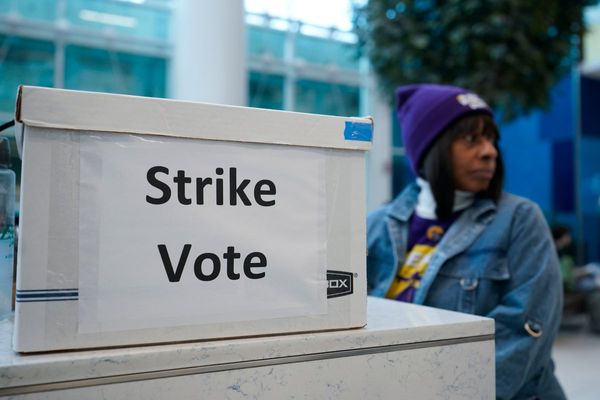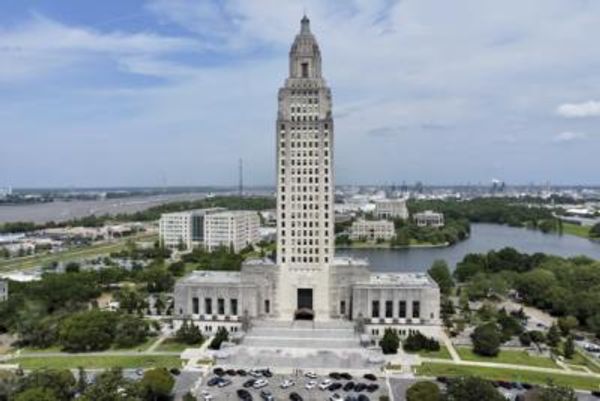
THE COUNTDOWN BEGINS
The First Nations Voice to Parliament referendum campaign has officially begun. Yesterday Prime Minister Anthony Albanese named the date for the vote — October 14 — and today most newspapers are leading with Voice coverage. “Time to pick a path: Yes or No,” The Sydney Morning Herald front-page story reads. “All ‘clear and simple’, except path to victory,” reads The Australian’s headline. The Daily Telegraph puts it this way: “Albo fires Voice starting gun to a nation divided,” and The West Australian reports “Albo’s Voice pitch for national unity,” to name just a few.
Inside the SMH, an exclusive story says the Yes campaign has far from the $100 million in campaign money that Opposition Leader Peter Dutton has claimed. “I wish we had $100 million, but no, we are running a very targeted campaign. It’s a modest campaign,” Yes campaigner Rachel Perkins told the paper.
But the Oz contends in a front-page headline the Yes camp is “cashed-up” and “putting in the hard yards” (although the accompanying story doesn’t mention anything about the Yes campaign’s funds). The outlet reports in its own exclusive: “The Yes camp’s leading crusaders for an Indigenous Voice to Parliament have been out-campaigning the No camp on the ground, spending much of their time in Sydney, Brisbane and regional NSW and Queensland ahead of the official campaign.” Leading No campaigners Country Liberal Senator Jacinta Nampijinpa Price and Nyunggai Warren Mundine, meanwhile, have “visited Queensland once each since early July, indicating they won’t be targeting their resources at the Sunshine State”. Queensland, Western Australia, Tasmania and South Australia are seen as the most crucial states for the No campaign, according to The Australian.
… AND COUNTING COUPS
Gabon is the latest African country to experience a military coup, after a group of officers claimed they had seized power overnight. The situation in the capital of Libreville was still developing as the Worm went to print, but this much is known: President Ali Bongo is under house arrest, and has appealed for help from allies; the group of officers who said they deposed him have claimed last weekend’s election results have been cancelled; foreign leaders have expressed concern over the situation. “My son is somewhere, my wife is in another place … Nothing is happening. I don’t know what is going on,” Bongo said, according to the BBC.
The outlet reports his use of English in the statement, rather than French, was notable. “French influence in Africa has waned significantly in recent years … Indeed the military may have seen French power ebbing and felt empowered to step in as a result, with Paris less likely to act in support of Mr Bongo,” the BBC reports. It comes just a month after soldiers took control in Niger. Politico reported overnight that the European Union is considering sanctions on the country’s ruling junta, according to a document seen by the outlet.
Is Africa — and parts of the wider world — going through a new “age of coups”? There were two coups in Burkina Faso last year, and failed attempts in Guinea Bissau, Sao Tome and Principe, and The Gambia. The year before, there were six coup attempts in Africa, four of which were successful, according to the BBC. It’s not just Africa. Brazil had a similar situation earlier this year that has been called an attempted coup d’état, and Moldova says it thwarted a putsch by pro-Russian loyalists last year. Germany, too, stopped an attempted coup last year. Even the US has had one: Donald Trump’s January 6 2021 insurrection was called an attempted coup by the chair of the House Select Committee looking into the incident.
An article in Kenya’s The East African last week commented on the several coups in West Africa over the past few years: “Now everyone is talking about the ‘West African coup belt’ and the ‘Sahel coup zone’, and such other names. Some people are going as far as claiming that there is a return to the age of coups in Africa.” US researcher Jonathan Powell told the BBC coups often follow each other, and that instability can add to the risk: “African countries have had conditions common for coups, like poverty and poor economic performance. When a country has one coup, that’s often a harbinger of more coups.”
SAY WHAT?
I don’t want to say anything … I have got some health issues.
Annastacia Palaszczuk
The Queensland premier has sparked speculation back home after she told a reporter from The Australian who tracked her down during her holiday in Italy that she’s suffering from unspecified health problems. Palaszczuk seemed less than pleased to field questions from the broadsheet and its News Corp stablemate The Courier-Mail, both of which bounced her in Naples, where her partner, surgeon Reza Adib, was speaking at a conference. “In Australia, some of Ms Palaszczuk’s Labor colleagues interpreted the mention of previously undisclosed health problems as the 54-year-old preparing the ground for a possible exit,” The Australian reported. It comes after Palaszczuk asked for some peace and quiet via a Facebook status update: “I am on leave. Everyone is entitled to leave. I ask that the media respects my privacy.”
CRIKEY RECAP
‘Urgent decision is sought’: inside Taylor Swift’s bid to beat Victoria’s ticket scalpers
EXCLUSIVE: Briefed ahead of time about a secret concert date, the Victorian government rushed to use its anti-scalping powers for Swift’s Era Tour.
“The Victorian government has 14 days to decide on whether to use powers to thwart ticket scalpers for major events like music concerts. But such is the importance of Taylor Swift that a request from her tour organiser was rushed through in just one day.
“In June, Victorian Minister for Tourism, Sport and Major Events Steve Dimopoulos declared Taylor Swift’s Melbourne concert dates a ‘major event’, activating legal restrictions against selling tickets more than 10% above their original value and limiting sales to only through official resellers. Pre-sale VIP tickets were purchasable the day before and were already listed on resale websites at excessively high mark-ups, according to consumer organisation CHOICE.
“Documents obtained through a freedom of information request by Crikey show how the decision was expedited to try and stop scalpers at the last minute after the tour’s organiser, Frontier Touring, only applied for declaration the day after pre-sale started.”
If price caps are good enough for the gas oligopoly, they’re good enough for Qantas
The airline is damaging the economy with its profiteering. It’s time to impose price caps, just like those imposed on the gas industry.
“Qantas is an economic menace to Australia. The airline’s anti-competitive behaviour at airports is locking out competitors. Its price gouging is forcing up inflation and directly harming the tourism industry. Its dominant position in the domestic market condemns millions of passengers to endure substandard service and overcharging that not merely shifts wealth from households to Qantas’ profits, but adds to the business costs of every firm that uses domestic aviation. And its ability to manipulate politicians damages policymaking in Australia.
“All in an industry that is naturally prone to duopoly or monopoly, regulated under the cosseted world of bilateral international air services agreements, the most protectionist multilateral trade regime on the planet, which heavily restricts the capacity of airlines in one country from competing effectively in another (and when they are allowed, like Air New Zealand under our single aviation market with NZ, they choose not to).”
“A foreign airline wanting to increase capacity to and from Australia is a rare thing, even after 30 years of air services liberalisation and capacity expansion by successive governments (always opposed by Qantas, which hates any airline being granted extra capacity to Australia); as we’ve seen with Qatar Airways, that airline might be denied because the governments want to look after Qantas management and shareholders.”
READ ALL ABOUT IT
How to watch the super blue moon tonight (9News)
North Korea warned against selling weapons to Russia for Ukraine war (Al Jazeera)
‘Extremely rare’ Roman temple discovered on Italy supermarket building site (CNN)
US Senate’s Mitch McConnell freezes up for second time in public appearance (Reuters)
Retired Chilean army brigadier takes own life after conviction for 1973 murder of singer Víctor Jara (El Pais)
Spain has condemned inappropriate World Cup kiss. Can it now reckon with sexism in soccer? (Associated Press)
Hurricane Idalia smashes eastern US (CBS)
THE COMMENTARIAT
The massacre of Tasmania’s forests could be stopped at any time. Where are Australia’s leaders? — Bob Brown (Guardian Australia): “After the photo of the ‘single-rider’ tree trunk being trucked out of Tasmania’s Florentine Valley forest gained worldwide notoriety, I took a walk in the forest, guided by the Wilderness Society’s Alice Hardinge. The loggers stopped work when we arrived and the boss was furious.
“The already logged area was studded with stumps more than 2 metres across which, according to Sustainable Timber Tasmania’s management plan, should have been saved from the chainsaws. These are Eucalyptus regnans, the tallest flowering trees on earth. They are the next generation reaching up to surpass 100 metres in height and to host centuries of wildlife including the Tasmanian masked owl, wedge-tailed eagles, white goshawks and an array of marsupials.”
If you can still have a laugh with your dad, do it now and as often as possible — Kathy Lette (SMH) ($): “If you’re lucky enough to still have a dad, go and hug him right now. Tell him how much you love him, too — although, being an Aussie bloke, he’ll probably just mumble something back like ‘Ditto’.
“When my darling dad died unexpectedly 10 years ago, what haunted me through the fog of grief was that I just couldn’t be sure if he knew how much I loved him.
“My clever, kind, capable father was nicknamed Optic Merv, because his name was Mervyn and he worked in optic fibre. In the 1950s, he won a £100 prize as the fastest rugby league front-row forward in Australia. He used the money as a down payment on a block of land on Oyster Bay, where he built the house mum still lives in.”
This is a major moment in our history — and we may never get a rerun — Bridget Brennan (ABC): “Six years ago, while the sun crept up into the crevices of Uluru, millions of Australians woke to what seemed like just another morning in May. But for a few hundred First Nations people gathered in the centre of Australia, history was being made. With bleary eyes after a sleepless night, one of the Aboriginal leaders there described his ‘euphoria’.
“Indigenous people had just agreed to a consensus position on what we now know as the Uluru Statement from the Heart — a request for Australians to change our constitution. They called it a simple plea to be heard, an idea they believed could repair the wounds of colonisation that run so deep.
“The fate of a constitutionally enshrined Indigenous Voice to Parliament will be decided in October, when Australians head to the polls for their first referendum in more than two decades. It took six years of rejection, diplomacy, and debate but now, on October 14, Australia will answer this question once and for all.”









